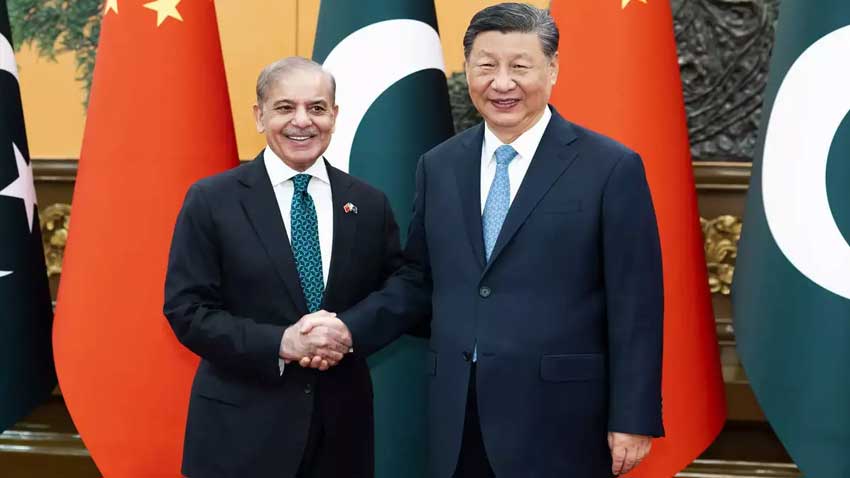
At the Second Pakistan-China B2B Investment Conference in Beijing, the prime minister announced the formal launch of CPEC 2.0, a new vision that shifts focus from state-to-state projects toward direct business-to-business cooperation.
Shehbaz Sharif assured Chinese investors that bureaucratic hurdles will no longer block progress. “We will not tolerate a second’s delay. I personally ensured a Chinese entrepreneur was facilitated within 24 hours,” he said, signaling Pakistan’s new investor-first approach.
The prime minister emphasized that Chinese investors will be treated as partners and given full security. “Pakistan is your second home, just as China is ours,” he declared, adding that the safety of Chinese nationals remains a top priority.
He credited the first phase of CPEC with ending Pakistan’s crippling 20-hour power outages. “That was the turning point,” he noted, saying now the focus will move to agriculture, IT and AI, mineral exploration, and industrial relocation.
For Pakistan’s common man, these investments are expected to bring jobs in Special Economic Zones (SEZs), modernize agriculture (which employs 60% of the population), and open new opportunities in technology and exports. Cheaper skilled labor and joint ventures with China could also lead to higher-quality local goods and more competitive export markets.
Recalling his first visit to China in 1982, Shehbaz Sharif praised President Xi Jinping’s leadership, saying China’s success in lifting 700 million people out of poverty is the model Pakistan wants to replicate. “We know the path is difficult, but not impossible. With China’s support and our commitment, we will make Pakistan a strong and vibrant economy,” he concluded.
Read more: Punjab fixes new flour and roti prices as 18 essential items get costlier
High-level dignitaries, including Deputy Prime Minister Ishaq Dar, Pakistan’s Ambassador to China Khalil Hashmi, and Chinese business leaders, were also present at the conference.
These agreements under CPEC 2.0 aim to bring benefits beyond large-scale infrastructure. For the common man, the real impact will be felt through new jobs, upgraded farming practices, industrial relocation, and growth in IT and AI sectors.
If implemented effectively, Pakistan could see a reduction in unemployment, improved food security, and increased exports. The challenge, however, lies in ensuring transparency, security, and sustained investor confidence.




